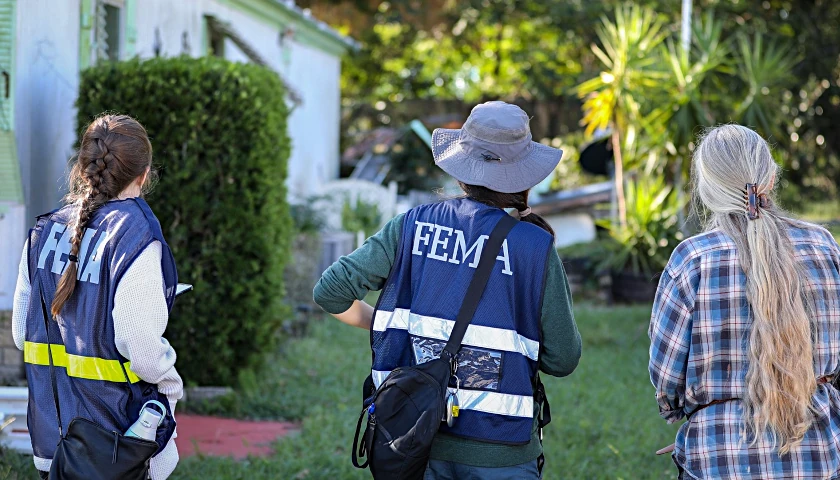by Mike Gonzalez
The 14th Amendment of the U.S. Constitution provides all Americans with “the equal protection of the laws.” But California’s Gov. Gavin Newsom seems to think this doesn’t apply to the once “Golden” state, since he has now signed into law a bill that creates a special emergency alert — but only for missing black children and no one else.
Called — we’re not making this up — the “Ebony Alert,” the new signal is just for missing black youths between the ages of 12 and 25. The usual “Amber Alert” that has been sounding off Americans’ phones for years applies only to children (of all colors) under 17 years of age. Amber Alerts were started in 1996 after the abduction and murder of 9-year-old Amber Hagerman in Arlington, Texas.
As even NBC News put it, “California’s newly enacted ‘Ebony Alert’ law is the first of its kind in the nation to prioritize the search for black youth gone missing.”
It is doubtful, therefore, that such a bill could survive legal scrutiny. The Constitution is color-blind. What court could uphold a law that only applies to one race and not the others? The clearest path to proving an equal protection violation is a law providing a benefit to one group over another.
But it is worth asking why California even tried to do something like this. Once again, as with all truly bad and nakedly unconstitutional policy decisions, it starts with the racial disparities that bedevil officeholders and policymakers alike.
Black people make up between 12 and 13 percent of the U.S. population, but 36 percent of missing people are black youths or women, according to NPR. Amber Alerts are much more successful with kids classified as white or Hispanic, helping one-third of the time to successfully recover them, according to USA Today. They work only one-seventh of the time with black kids. This led some people to support a patently racial fix.
The Black and Missing Foundation explains that “a lot of minority children are initially classified as runaways, and as a result, do not receive the Amber Alert.”
to Elon University, “To be labeled an Amber Alert, there must be reasonable evidence that an abduction has occurred, the child must be believed to be in imminent danger of serious bodily injury or death, there must be enough descriptive information about the victim and the abductor, the child must be under the age of 17.”
“Today, California is taking bold and needed action to locate missing black children and black women in California. I want to thank the governor for signing the Ebony Alert into law,” said Democratic state Sen. Steven Bradford, vice chair of the Legislative Black Caucus, in a press release. “Our black children and young women are disproportionately represented on the lists of missing persons. This is heartbreaking and painful for so many families and a public crisis for our entire state. The Ebony Alert can change this.”
One reason black children are reportedly more often classified as runaways is that they are more likely to be homeless or in the foster care system. Or they are sometimes taken by family members, not by strangers, and authorities refuse to issue an alert stemming from a family custody dispute. Or, some critics charge, police may be too quick to classify those missing as young criminals.
“For our black women and our black youth, we are misclassified as runaways, we are misclassified as gang affiliated, we are misclassified for all these reasons that don’t bring a level of value and attention to their lives mattering,” Oakland City Councilmember Treva Reid told NBC Bay Area.
These are all tragedies and must be seen that way. As with nearly all the demographic disparities in cultural indicators, the numbers represent real problems to be solved, either by policy or by an all-of-society, cultural approach.
One possible solution comes from one of the co-founders of Black and Missing, former police officer Derrica Wilson. As USA Today put it, citing Wilson’s work, “It’s time to revisit Amber Alert criteria to remove the prohibition on children who run away … The criteria should focus on danger to the child,” she said, “and the classification of ‘runaway’ should be eliminated.”
“These children are missing,” Wilson was directly quoted as saying.
Beyond that, there is the much heavier work of answering the pressing question: Why are black children more often homeless, in foster care, or more likely to be taken by a family member? The potential remedies there include considerations of family formation public policy that the Left simply refuses to touch.
So, as was the case with the racial preferences of affirmative action, with racial quotas and set-asides, and with all the other heavy-handed “equity” solutions, leftists like the ones that Californians routinely elect to the legislature and the governor’s mansion are determined to solve the problem by fiat, with a solution whose color-consciousness offends the sensibility of people, never mind the Constitution.
The losers from a law with dubious constitutionality and from the absence of real remedies will be missing children of all colors, all of whom need help.
– – –
Mike Gonzalez, a senior fellow at The Heritage Foundation, is a widely experienced international correspondent, commentator, and editor who has reported from Asia, Europe, and Latin America. He served in the George W. Bush administration, first at the Securities and Exchange Commission and then at the State Department, and is the author of the book “BLM: The Making of a New Marxist Revolution.” Read his research.





[…] The 14th Amendment of the U.S. Constitution provides all Americans with “the equal protection of the laws.” But California’s Gov. Gavin Newsom seems to think this doesn’t apply to the once “Golden” state, since he has now signed into law a bill that creates a special emergency alert — but…Read More […]